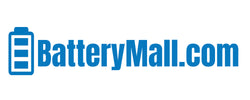Are NiMH and Li-ion battery chargers compatible?

Introduction
In this highly information-based era, our daily lives are inseparable from various electronic devices, such as smartphones, laptops, various power tools, etc. These electronic devices play an important role in improving our work efficiency and quality of life. But it needs to be clear that the battery of any electronic device is a consumable item. To keep your device running, you need to rely on rechargeable batteries to power it all day long. Among many rechargeable batteries, nickel metal hydride (NiMH) and lithium ion (Li-ion) batteries are widely used due to their unique advantages.
However, have you ever wondered whether chargers for these two different types of batteries can be used interchangeably? Can the charger of NiMH battery and lithium-ion battery be used universally? Next, let us discuss and answer these questions together.
About lithium-ion batteries
A lithium-ion battery is a rechargeable battery that uses lithium ions as its primary electrochemical component. Lithium-ion batteries have characteristics such as high energy density, low self-discharge rate and lightweight design, which make them an excellent power source in many applications. For example, it is commonly found in various smartphones, laptops, electric cars, and many other modern devices.
For its weight and size, lithium-ion batteries hold three times the power of rechargeable nickel-metal hydride batteries. In addition, lithium-ion batteries have a higher operating voltage than nickel-metal hydride batteries, which can use fewer cells to form a larger battery. This means that the size and weight of lithium-ion batteries are smaller than that of nickel-metal hydride batteries with the same amount of electricity. It can make the device more lightweight and compact.
However, it should be noted that lithium-ion batteries also have some safety hazards. Lithium is a highly reactive metal that may burn when heated or exposed to oxygen. Therefore, overcharging lithium-ion batteries is dangerous and can cause a fire or explosion.
About nickel metal hydride batteries
A nickel-metal hydride battery is a rechargeable battery that uses a nickel-based positive electrode, a hydrogen-absorbing negative electrode, and an alkaline electrolyte. Compared to lithium-ion batteries, nickel-metal hydride batteries have lower energy density, so their battery life is shorter. Additionally, NiMH batteries produce lower voltages, and it requires more cells to reach the same voltage as Li-ion batteries. This results in nickel-metal hydride batteries being larger and heavier than lithium-ion batteries of the same voltage.
Of course, nickel-metal hydride batteries also have their advantages. In contrast to lithium-ion batteries, nickel-metal hydride batteries do not ignite or explode when exposed to oxygen. Therefore, nickel-metal hydride batteries are safer and more reliable in some applications.
The difference between lithium-ion batteries and nickel-metal hydride batteries
In short, lithium-ion batteries and nickel-metal hydride batteries differ in the following aspects.
- Chemical composition:Lithium-ion batteries use lithium ions, while nickel-metal hydride batteries use nickel oxyhydroxide and hydrogen-absorbing electrodes.
- Energy density:The energy density of lithium-ion batteries is higher than that of nickel-metal hydride batteries. This means that within a given volume, lithium-ion batteries can store more electrical energy.
- Memory effect:Ni-MH batteries are more susceptible to the so-called "memory effect". That is, if a NiMH battery is charged without being fully discharged, the battery may gradually lose its maximum capacity over time. In contrast, lithium-ion batteries do not have this problem.
- Voltage:The nominal voltage of a single cell of lithium-ion batteries is usually higher than that of nickel-metal hydride batteries. Lithium-ion batteries typically have a nominal voltage of 3.7-3.8V compared to NiMH batteries (1.2V per cell).
- d. Self-discharge rate:Compared with nickel-metal hydride batteries, lithium-ion batteries have a slower self-discharge rate when not in use. This also means that the lithium-ion battery retains most of its charge even if it is not used for an extended period of time.

KingSener 99.5Whr A1618 Battery For Apple MacBook Pro 15 inch Retina A1398 2015 Year 020-00079 MJLQ2LL/A MJLT2LL/A
The difference between lithium-ion charger and nickel-metal hydride charger
There are differences in the design and working principles of chargers for lithium-ion batteries and nickel-metal hydride batteries. Generally speaking, chargers for lithium-ion batteries are more complicated than chargers for nickel-metal hydride batteries. Because they need to have more safety functions, such as overcharge protection, over-discharge protection, over-current protection, etc. This is an important setting for a lithium-ion battery charger to prevent its batteries from malfunctioning or exploding during charging.
Additionally, charging conditions may vary between different brands and types of lithium-ion batteries. Therefore, there are also different types of lithium-ion battery chargers, which need to be adapted and adjusted according to the model and parameters of the lithium-ion battery.
In contrast, chargers for NiMH batteries often lack the safety features found in chargers for Li-ion batteries. Their design and working principle are relatively simple. Therefore, when you need to charge a lithium-ion battery, it is recommended that you use a lithium-ion charger.
Can I use a NiMH charger to charge lithium-ion batteries?
No, we recommend that you do not use NiMH chargers to charge Li-ion batteries. Because the nickel-metal hydride charger is designed based on the chemical properties and characteristics of nickel-metal hydride batteries. Compared with lithium-ion batteries, it has different charging algorithms and working principles.
Second, lithium-ion batteries require specific charging voltages and currents, while chargers for nickel-metal hydride batteries may not provide them with the correct charging conditions. Therefore, using a NiMH charger to charge a lithium-ion battery may result in overcharging or undercharging the battery. The results range from damaging the performance and life of the lithium-ion battery to causing thermal runaway or battery explosion.
Therefore, for maximum safety, we recommend that you use a charger specifically designed for lithium-ion batteries when charging. It is important to charge with the correct charger that matches the battery. Of course, if you are not sure about the compatibility of the charger with the battery, it is best to read the manufacturer's instructions or consult relevant professionals before charging.
Can I use a lithium-ion charger to charge NiMH batteries?
While this may sound tempting, we don't recommend it. Lithium-ion chargers are designed for lithium-ion batteries, while NiMH chargers are designed for NiMH batteries. While lithium-ion and nickel-metal hydride chargers may appear similar in appearance, their charging characteristics and working principles are fundamentally different.
Lithium-ion chargers typically use charging algorithms customized for lithium-ion batteries. They monitor voltage levels, current and temperature, and can cut off power if a problem is detected to ensure batteries can be charged safely and efficiently. And if you try to charge a NiMH battery with a lithium-ion charger, it may cause problems such as undercharging, overcharging, or insufficient battery failure detection.
Can lithium-ion and nickel-metal hydride batteries be mixed?
In general, we do not recommend that you mix battery chemistries or mix different batteries. In short, if there are differences from battery to battery (capacity, lifespan, chemistry, charge rate, brand, etc.), it's best not to mix them.
Are NiMH batteries compatible with smart multi-function chargers?
Yes. Most smart multi-function chargers are compatible with NiMH and Li-ion batteries.
The smart multi-function charger is a highly practical device that combines charging convenience with a range of smart functions. This charger is versatile and can be used with a variety of devices and battery types, including NiMH and Li-ion batteries.
It is also worth mentioning that the smart multi-function charger has functions such as automatic voltage detection, automatic protection, and fast charging. At the same time, it also has a variety of charging ports and has strong compatibility. The emergence of smart multi-function chargers can make battery charging more convenient. However, it should be noted that when you use this charger to charge the battery, you must follow the manufacturer's guidelines and instructions to ensure the safety of battery charging.
How to choose a smart multi-function charger that suits your needs?
Choosing a charger that suits your needs requires you to consider factors such as device type, battery type, charger compatibility, charger interface power, etc. If you are not sure, you can read the product description of the relevant smart multi-function charger, or consult professional staff to help you make an informed decision.
Summarize
Overall, there are some issues with compatibility between NiMH and Li-ion batteries. Due to their different charging characteristics and working principles, using the wrong charger may result in poor charging, reduced battery performance, or safety issues. Therefore, to ensure the safety and performance of your battery, it is recommended that you use the correct charger that matches your battery.
Finally, if you want to know more about batteries, please visit: BatteryMall.com/support.








